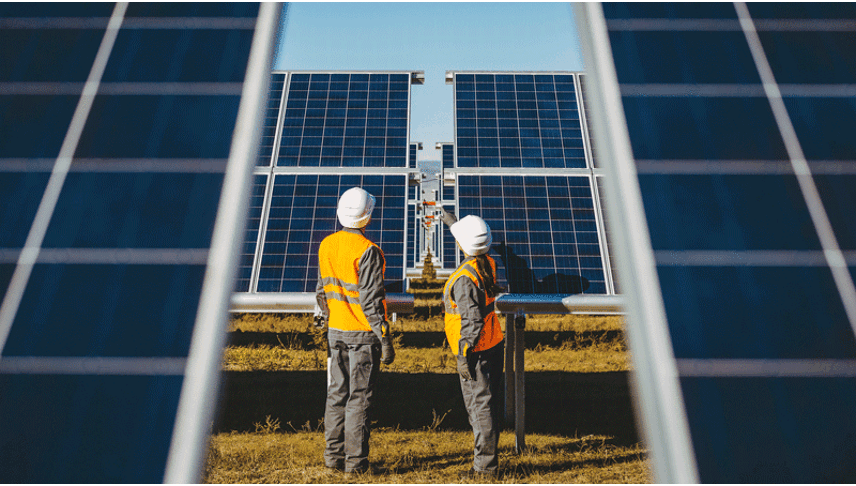Register for free and continue reading
Join our growing army of changemakers and get unlimited access to our premium content

The survey, the Global Energy Talent Index (GETI), was conducted by workforce solutions firm Airswift and the results have been published today (14 February). They reveal key trends in all energy sectors and, in the renewable energy sector, they paint a picture of increasing demand for skilled workers.
Of the respondents working in clean energy, 78% said they had been headhunted for at least one new job within the past year. Almost one-third (31%) said they had been headhunted for six or more new roles within this timeframe.
Not all of these job offers came from within the clean energy sector. Around one-quarter (23%) of respondents said more than half of their job offers came from other sectors.
For those who are choosing to move sector, GETI revealed that technology is now the most popular outside industry to move to, followed by fossil fuels, which have historically been the top choice.
The survey did shine a light on some of the reasons that workers are attracted to renewable energy work and choose to remain in the sector, including pay, company culture and feeling that they are contributing to the energy transition.
On pay, half of those surveyed reported receiving a pay increase within the past year. On company culture, 73% of those surveyed said they felt comfortable expressing their views and values at work – the highest proportion that Airswift recorded in any of the energy sub-sectors covered by its research.
Nonetheless, two thirds of workers would consider leaving the sector for the right offer. Pay is cited as the biggest driver of job dissatisfaction for 59% of renewables workers. The second-biggest driver, the GETI found, was workers feeling that their benefits packages were poor. Renewables workers cited oil and gas majors as their top choices of future employers, stating that they percieved these businesses to routinely offer high salaries and good benefits packages.
Commenting on the findings, Airswift’s chief executive Janette Marx said: “The energy transition will hinge on our green skills base, yet renewables talent is increasingly restless and in demand from outside sectors.
“Renewables workers are the most likely to care about their employers’ values, but this now goes beyond the environment and encompasses metrics such as their contribution to society and workplace flexibility. Green energy firms will now have to compete with fossil fuel firms on a wider range of metrics from societal impact to flexibility by creating more meaningful roles with KPIs linked to social as well as environmental contributions, and by reducing fixed hours and physical deployments.”
The publication of the GETI comes less than a week after the International Energy Agency (IEA) published its Electricity Market Outlook for 2023. The Agency is forecasting that renewables and nuclear energy will “dominate” the growth of global electricity production in the next three years, together accounting for more than 90% of additional global demand.
Join the net-zero debate at edie 23 on 1-2 March
Taking place in London on 1-2 March 2023, edie’s biggest annual event has undergone a major revamp to become edie 23, with a new name, new venue, multiple new content streams and myriad innovative event features and networking opportunities. One of the major changes for 2023 is the creation of a dedicated Net-Zero Stage.
edie 23 will take place at the state-of-the-art 133 Houndsditch conference venue in central London. Held over two floors, the event will offer up two full days of keynotes, panels, best-practice case studies and audience-led discussions across three themed stages – Strategy, Net-Zero and Action.
Speakers confirmed for the Net-Zero Stage include Climate Change Committee chairman Lord Deben; the Science-Based Targets Initiative’s senior manager for net-zero Emma Watson; and the Department for Business, Energy and Industrial Strategy’s (BEIS) head of net-zero business engagement Catherine Westoby.
Click here for full information and to book your ticket.


Please login or Register to leave a comment.